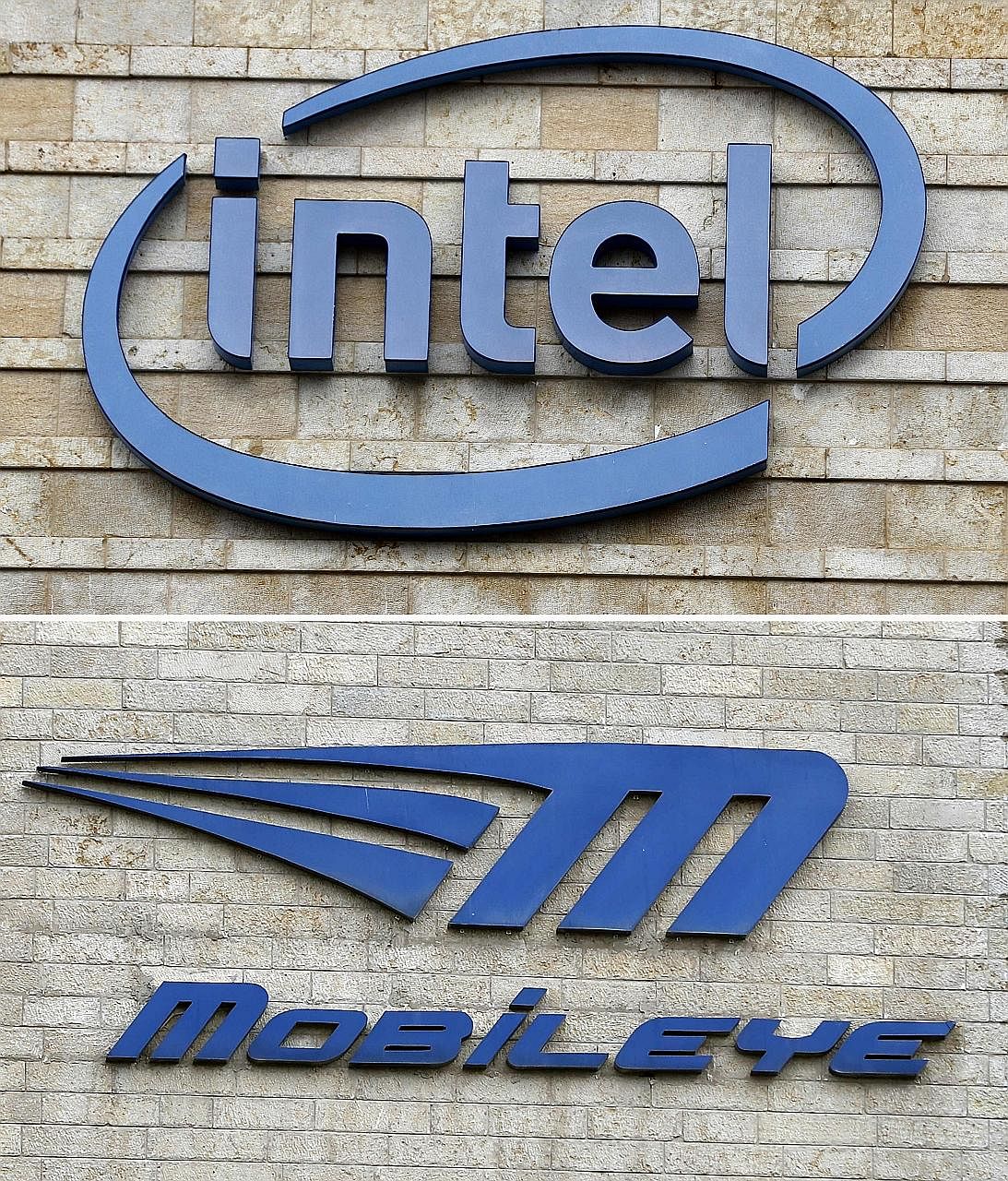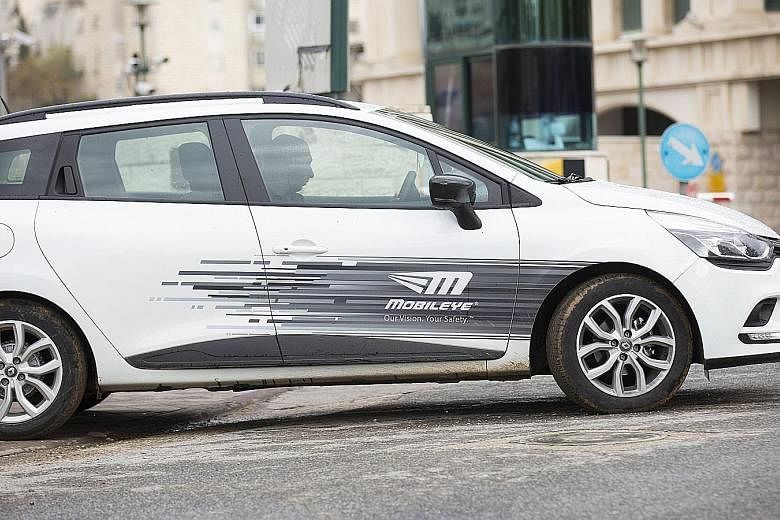JERUSALEM/DETROIT • Intel has agreed to buy Israeli autonomous vehicle technology firm Mobileye for US$15.3 billion (S$21.6 billion), in a deal that could thrust the United States chipmaker into direct competition with rivals Nvidia and Qualcomm to develop driverless systems for global carmakers.
The pricey acquisition of Mobileye could propel the world's largest computer chipmaker into the front ranks of automotive suppliers at a time when Intel has been reaching for market beyond its core computer semiconductor business.
It also promises to escalate the arms race among the world's carmakers and suppliers to acquire autonomous-vehicle technology, and could fuel already-overheated valuations of self-driving start-ups.
Last October, Qualcomm announced a US$47 billion deal to acquire NXP, the largest automotive chip supplier, putting pressure on other chipmakers seeking to make inroads in the market, including Intel, Mobileye and Nvidia.
The stakes are enormous. Last year, Goldman Sachs projected the market for advanced driver-assistance systems and autonomous vehicles would grow from about US$3 billion in 2015 to US$96 billion in 2025 and US$290 billion in 2035.

Sceptics have questioned whether car companies and suppliers will be able to deploy fully self-driving cars safely in the next four years, as several have promised.
Analysts raised concerns on Monday about the potential synergies between Intel and Mobileye, as well as the acquisition's price.
Intel has not been a significant player in the sector, although it has invested in at least half a dozen start-up companies developing different components for self-driving systems, from robotics to sensors.
Mobileye brings a broad portfolio that includes cameras, sensor chips, in-car networking, roadway mapping, cloud software and data fusion and management.
"This is a tremendous opportunity for them to get into a market that has significant growth opportunities," said Loop Capital Markets analyst Betsy Van Hees. "Mobileye's technology is very critical... The price seems fair."
Still, industry newsletter Semiconductor Advisors wrote on Monday that Intel's acquisition of Mobileye indicates a strategic move "very far outside its core business franchise".
The market for self-driving technology is becoming crowded, including mapping company Here, as well as technology companies ranging from Alphabet's Waymo to Chinese Internet giant Baidu.
Intel will give Mobileye unusual autonomy, integrating its own automated driving group with Mobileye's operations under chairman Amnon Shashua, who will lead the unit from Israel.
Intel chief executive Brian Krzanich said the acquisition was akin to merging the "eyes of the autonomous car with the intelligent brain that actually drives the car".
Mobileye supplies integrated cameras, chips and software for driver-assistance systems - the building blocks for self-driving cars - to more than two dozen vehicle manufacturers.
Founded in 1999, Mobileye accounts for 70 per cent of the global market for driver-assistance and anti-collision systems.
Mobileye and Intel are already collaborating with German carmaker BMW on a project to put a fleet of around 40 self-driving test vehicles on the road in the second half of this year.
At the same time, Mobileye has teamed up with Intel for its fifth generation of chips that will be used in fully autonomous vehicles that are scheduled for delivery around 2021.
Mobileye had also partnered systems integrator Delphi Automotive, which has partnerships with Intel and Mobileye, on a self-driving platform that is being shopped to smaller car companies that may not have the resources to develop their own systems.
REUTERS

